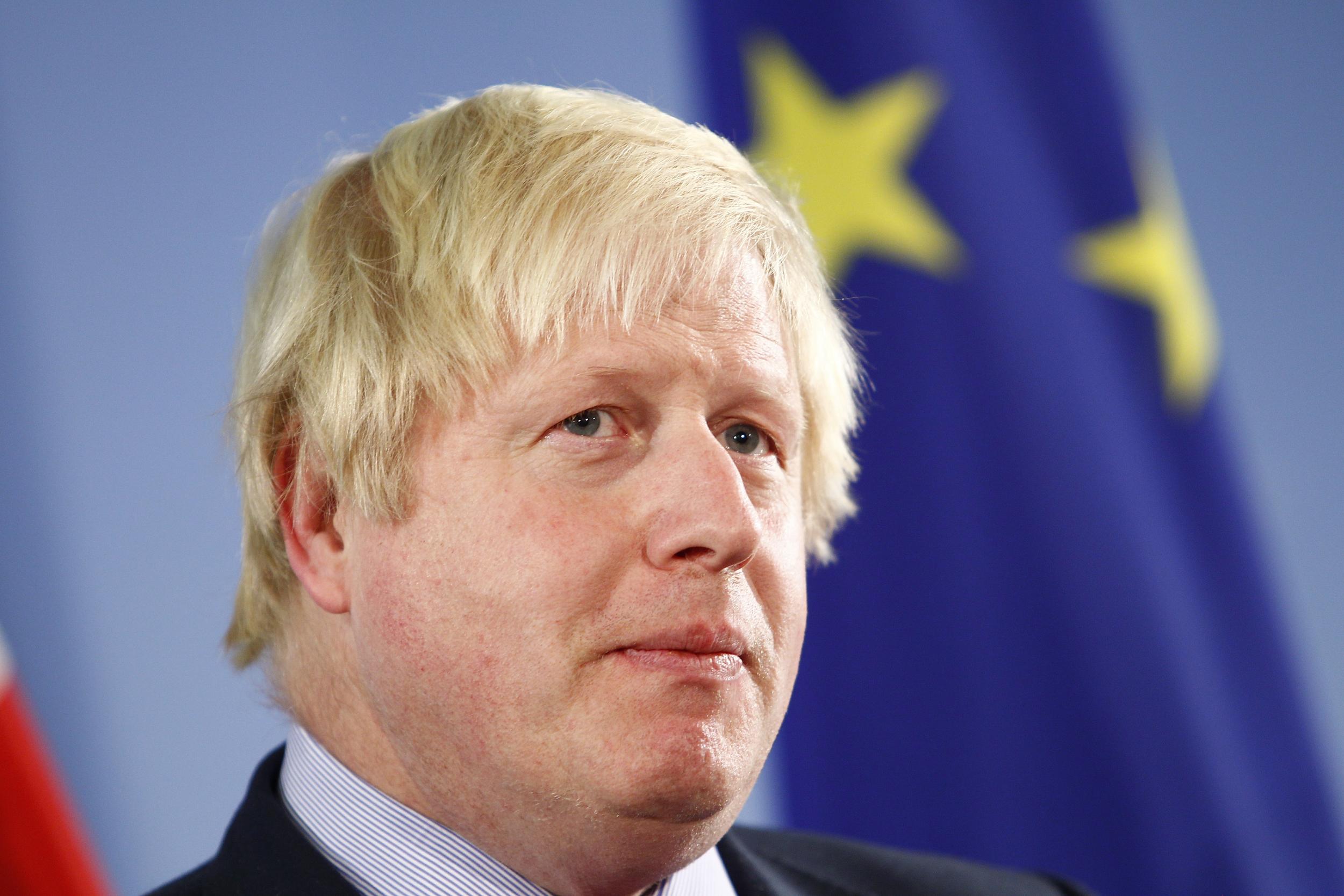G7 Summit: EU and Germany 'cool' on Britain and America's plan for Russia sanctions
Britain is pushing for new punitive measures on Moscow following the Syria chemical weapons attack

Your support helps us to tell the story
From reproductive rights to climate change to Big Tech, The Independent is on the ground when the story is developing. Whether it's investigating the financials of Elon Musk's pro-Trump PAC or producing our latest documentary, 'The A Word', which shines a light on the American women fighting for reproductive rights, we know how important it is to parse out the facts from the messaging.
At such a critical moment in US history, we need reporters on the ground. Your donation allows us to keep sending journalists to speak to both sides of the story.
The Independent is trusted by Americans across the entire political spectrum. And unlike many other quality news outlets, we choose not to lock Americans out of our reporting and analysis with paywalls. We believe quality journalism should be available to everyone, paid for by those who can afford it.
Your support makes all the difference.The push to impose new sanctions on Russia following the deadly chemical weapons attack in Syria has hit trouble amid claims that the EU and Germany are “cool” on the idea.
Sources at the G7 in Italy told The Independent that Britain and America’s plan for new punitive measures on Moscow are being taken seriously, but face hurdles before receiving international approval.
To win backing, Foreign Secretary Boris Johnson may have to narrow the measures’ scope and already accepts none will be imposed before the completion of an investigation into the chemical incident at the village of Khan Sheikhoun last week.
In a bid to give the plan force Theresa May and Donald Trump spoke on the phone on Monday night and agreed there is now a “window of opportunity” for Russia to ditch its support for the Syrian regime of Bashar Assad.
Sources at the G7 said: “The UK and the US are pushing but the Germans and the EU representative are cool on the idea.
“The sanctions are still on the table, but they know they will have to wait until the investigation into the chemical weapons attack before they can be implemented.
“Several people have referred to sanctions here so the US and UK are not isolated, but it’s not universal at this stage.”
US Secretary of State Rex Tillerson is travelling to Moscow imminently and had hoped to take with him a definite statement of intent from the G7 nations and other partners, including Middle Eastern allies who are at the Lucca meeting.
But with just hours left to negotiate it was unclear how solid his backing for new sanctions would be going into the meeting with Vladimir Putin’s representatives.
A source at the EU told The Independent any sanctions by the block would need the unanimous support of member states, adding: “There are clear procedures for sanctions at EU level.”
The White House said Mr Trump had called Angela Merkel to discuss Syria. But while officials said the German leader "expressed support" for the US military action and agreed on the importance of holding Assad "accountable", there was no mention of sanctions.
A spokesman said: "President Trump and his counterparts agreed to stay in touch regarding Syria and other international issues of mutual concern."
Even Canada, one of the closest allies of the UK and US, would only say it was exploring the idea of new sanctions on Tuesday.
With wrangling still going on over the issue, Mr Trump thanked Ms May on the phone for her support in the wake of last week's US missile attack on the air base from which the chemical attack is believed to have been launched.
A Downing Street spokesman said: “The Prime Minister and the President agreed that a window of opportunity now exists in which to persuade Russia that its alliance with Assad is no longer in its strategic interest.
“They agreed that US Secretary of State Tillerson's visit to Moscow this week provides an opportunity to make progress towards a solution which will deliver a lasting political settlement.”
There was outrage across the world after dozens of civilians were killed in what is believed by the West to have been a chemical weapons attack by the Assad regime.
Anticipating tough language from the G7 in Italy, Russia and Iran issued on Monday a joint call for an “unbiased investigation” into the gassing at the Syrian village.
Foreign Minister Sergey Lavrov and his Iranian counterpart Mohammad Javad Zarif agreed to demand the probe, while denouncing the US attack on the Syrian airbase as “an act of aggression against a sovereign nation”.
Join our commenting forum
Join thought-provoking conversations, follow other Independent readers and see their replies
Comments